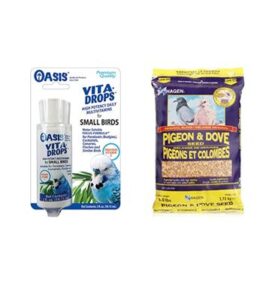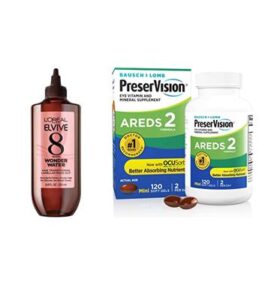Pigeons are popular birds known for their adaptability and intelligence. Whether you keep pigeons as pets or for racing, it’s important to prioritize their health and well-being.
To Keep Pigeons Healthy, Follow These Steps:
- 1. Provide clean and healthy food and water
- 2. Maintain a neat and clean environment
- 3. Observe your pigeons for any signs of illness
- 4. Limit handling of pigeons
- 5. Allow for regular bathing
- 6. Provide open space for flap
- 7. Keep necessary medicines at hand
- 8. Ensure adequate sunlight and airflow
- 9. Provide opportunities for exercise
- 10. Keep your pigeons vaccinated

How to Keep Pigeons Healthy
To ensure the health and happiness of your pigeons, it is important to follow these guidelines:
1. Provide clean and healthy food and water
Wash seeds and seedmixes thoroughly before feeding them to your pigeons. Change their water daily and consider adding garlic to the water for added health benefits.
2. Maintain a neat and clean environment
Clean the cages or lofts at least twice a week to prevent the buildup of waste and maintain a hygienic living space for your pigeons.
3. Observe your pigeons for any signs of illness
Regularly check your pigeons for any signs of sickness and isolate any sick pigeons immediately to prevent the spread of disease. Administer appropriate treatments to keep them healthy.
4. Limit handling of pigeons
While it may be tempting to pet your pigeons, excessive handling can disturb the balance of their feathers. Minimize handling and keep children away from them to avoid unnecessary stress.
5. Allow for regular bathing
Pigeons enjoy bathing to clean their feathers. Add medication for lice to the water and ensure they have access to clean water for bathing. After bathing, make sure they have access to sunlight to dry off and prevent them from catching a cold.
6. Provide open space for flap
If you keep fancy pigeons in cages, give them some time each day to flap their wings outside of the cages. This will keep them happy and healthy, as they are birds and require exercise.
7. Keep necessary medicines at hand
Have essential medicines, such as vitamins and calcium, readily available to treat your pigeons in case of any illnesses or emergencies.
8. Ensure adequate sunlight and airflow
Sunlight is essential for the health of pigeons, as it acts as a natural medicine. Make sure their cages or lofts are placed in an area with sufficient sunlight and ensure proper airflow to maintain a healthy environment.
9. Provide opportunities for exercise
Encourage regular exercise by allowing free flight or providing time in an aviary. This promotes muscle strength, cardiovascular health, and mental stimulation for your pigeons.
10. Keep your pigeons vaccinated
Follow a proper vaccination schedule to protect your pigeons from various diseases that may be prevalent in their environment. Regular vaccinations are crucial for their overall health and well-being.
How To Take Care of Sick Pigeon’s Health
1. Isolating a Sick Pigeon: When a pigeon gets sick, it’s crucial to isolate it from others to prevent the illness from spreading. This is important for the well-being of both the sick bird and the other pigeons. It’s also essential to ensure that stray birds do not enter the same cage, as this significantly reduces the risk of illness transmission.
2. Proper Cleaning and Hygiene: To maintain the health of pigeons, it’s crucial to provide proper care while cleaning their cage or coop. Adding disinfectants to their water can help prevent bacterial diseases. Additionally, ensuring good air supply and keeping the coop and cage dry at all times helps to create a healthy environment for the birds.
3. Early Recognition of Symptoms: Pigeons, like any organism, can get sick. It’s vital to recognize any symptoms quickly to prevent further deterioration and provide the necessary care.
By following these simple steps, bird keepers can help ensure the health and well-being of their pigeons.
Taking Care of Baby Pigeons
Pigeons typically reach maturity at six months. When a female pigeon lays eggs, both the mate and her will usually get overprotective, which is normal. Once the eggs hatch, both parents will take sufficient care of the offspring and no extra care is needed until a month or so. During this period, both parent pigeons will produce milk (crop milk) which is the sole food the babies can digest.
1. Feeding a Baby Pigeon
If a baby pigeon does not have a parent, ask a veterinarian about a proper diet. Most likely, you will be recommended a commercial baby bird mixture which you’ll have to feed the bird by a syringe. Make sure that the syringe is cleaned in hot boiling water after each use to avoid infection. Feed this mixture 2-3 times per day until the baby bird is 5 days old. Post that, feed the pigeon with a larger syringe.
2. Growth and Independence
When the pigeon is 3 weeks old, leave some seeds in its cage for it to start to eat. Also, keep feeding it water from a syringe until it is a month old. By six weeks, the pigeon is no more a baby and will need proper care just like an adult pigeon.
How to Provide a Clean and Comfortable Home for Pigeons
When designing a home for your pigeons, it’s important to consider their comfort and well-being. This can be achieved by providing a clean and comfortable living environment.
1. Pigeon Coop or Cage
Design a spacious, well-ventilated coop or cage that allows ample movement and is easy to clean and maintain. This will ensure that the pigeons have enough space to move around and stay healthy.
2. Bedding
Choose appropriate bedding materials that are absorbent, easy to replace, and contribute to a comfortable living environment. Good bedding will help keep the coop or cage clean and provide a cozy resting place for the pigeons.
3. Perches
Provide perches at varying heights and materials to support natural behaviors and exercise. This will keep the pigeons active and engaged, promoting their overall health and well-being.
4. Nesting Boxes
Offer secure and cozy nesting boxes to encourage breeding and nesting behaviors. This will provide a safe and comfortable space for the pigeons to lay eggs and raise their young.
5. Regular Cleaning
Regular cleaning and disinfection routines are essential to prevent the accumulation of bacteria and maintain a hygienic living space. This will help prevent illness and ensure that the pigeons have a clean and healthy living environment.
How to Check Your Pigeon for Signs of Illness
1. Monitoring Your Pigeon’s Health: Regularly monitoring your pigeon’s health is essential for their well-being. Ensuring prompt identification and treatment of any signs of illness is crucial for maintaining their health and happiness.
2. Signs of a Healthy Pigeon: Healthy pigeons typically have bright eyes, smooth and glossy feathers, and exhibit active behavior. They also have a healthy appetite, showing interest in their food and consuming it readily.
3. Signs of a Sick Pigeon: Unusual droppings, changes in behavior, breathing difficulties, or visible signs of distress are potential indicators of illness. It’s important to be observant and take note of any changes in your pigeon’s health and behavior.
4. Taking Action if Your Pigeon is Sick: If you notice any signs of illness, it’s important to consult a veterinarian for a thorough diagnosis and follow their prescribed treatment plan diligently. Early intervention is key to ensuring your pigeon’s swift recovery.
Ensuring the good health of your pigeon is a responsibility that comes with pet ownership. By staying vigilant and taking prompt action when needed, you can help keep your pigeon happy and healthy for years to come.
FAQs
Regularly clean the pigeon’s living area to remove droppings, leftover food, and debris. Provide fresh bedding and ensure the area is well-ventilated.
For a healthy pigeon, it’s best to feed them a balanced diet that includes grains, legumes, seeds, and occasional greens and fruits as supplements. This will provide them with the necessary nutrients for their well-being.
The amount of food to feed your pigeon will vary depending on its age, activity level, and specific health needs. It’s important to practice portion control to avoid overfeeding or undernourishment. Consult with a veterinarian to determine the appropriate amount of food for your pigeon.
Pigeons should be fed on a regular schedule, typically twice a day, to maintain their energy levels and provide them with the necessary nutrients. It is also important to ensure they have an adequate supply of water.
Keep their living area clean and dry to prevent the spread of diseases. Provide regular health check-ups and vaccinations as recommended by a veterinarian.
Pigeons need regular exercise to stay healthy. Allow them to fly freely for a specified period each day to maintain their physical and mental well-being.
Handle pigeons gently and consistently to build trust. Use positive reinforcement techniques to train them for activities like racing or homing.
Common health issues include respiratory infections, parasites, and injuries. If you notice any signs of illness or injury, seek veterinary care immediately. Regular health check-ups are essential for early detection and treatment of health issues.
Pigeons need essential vitamins and minerals in their diet for optimal health. This includes Vitamin A, B-complex vitamins, calcium, and grit for digestion. Supplementing their diet with these nutrients is important to keep them healthy.
If you think your pigeon is sick, it’s best to consult a veterinarian. They can give your pigeon a thorough diagnosis and provide a treatment plan. It’s important to follow their instructions carefully to ensure your pigeon gets the proper care it needs.
Conclusion
In conclusion, keeping pigeons healthy requires a combination of proper nutrition, good hygiene, and regular medical check-ups. By providing a balanced diet, keeping their living environment clean, and monitoring their health closely, pigeon owners can ensure the well-being of their birds.
Preventative measures such as vaccinations and parasite control are essential for maintaining a healthy flock. Additionally, regular exercise and mental stimulation are important for the overall health and happiness of pigeons.
Overall, a proactive approach to pigeon care and health maintenance is crucial for keeping these birds in prime condition. By implementing these strategies, pigeon owners can ensure that their birds lead healthy and fulfilling lives.


